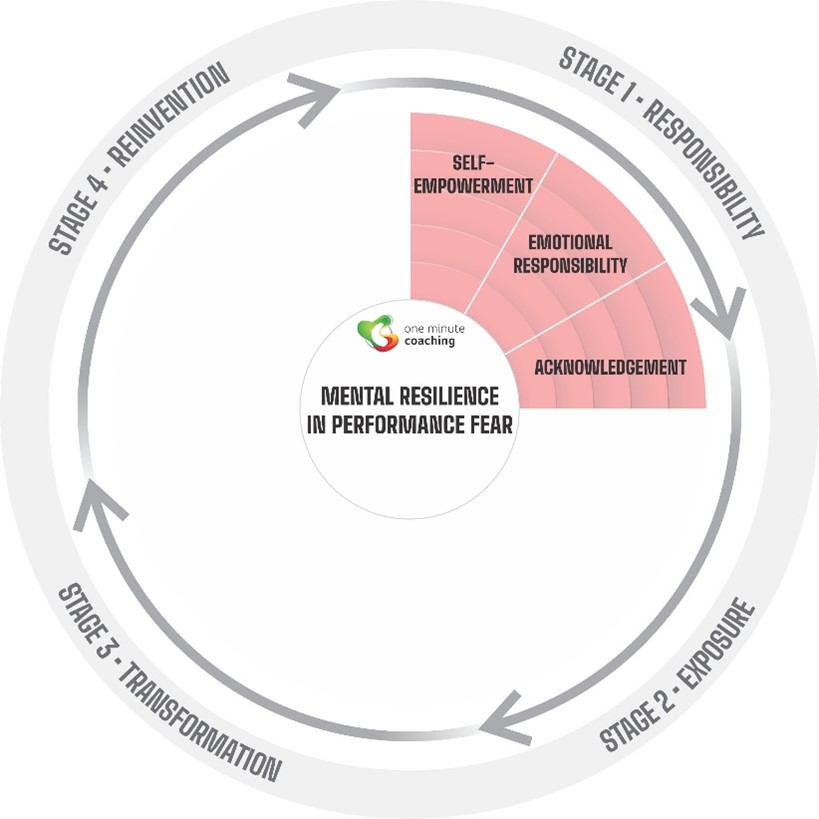
A chief creates or destroys a corporate culture within 10 seconds
Imagine this: you’re in a monthly review with the whole department in a townhall setting. You, as chief, stand in front of a group of

There is a weird thing going on when people master a new skill or become familiar with a new position. They tend to stay there.
From the moment I started training people, I became intrigued by this tendency of most individuals to comply for their current state. There is nothing inherently wrong with this, as long as it’s a conscious choice. Unfortunately, in most cases, it isn’t. I see this inclination to settle as a flaw in human nature—one that is testing our mental resilience.
Why is that?
Our bodies and brains exhibit remarkable adaptability, allowing us to navigate all kinds of situations and respond adequately to external influences. However, over time, most people settle into a routine and establish a steady state. Whether it is during the initial months of a new job, after the first gym workouts, or the first experiences in an unfamiliar sport, this pattern repeats itself. It is our human nature, aiming to preserve stability. The idea is to create a save mode: ‘Stay where you are, and nothing can go wrong.’ Unfortunately, by doing so, our mental resilience remains unchallenged and tends to diminish over time. As a result, only a small minority of people reach their full potential.
Once I understood this principle, that personal growth lies beyond the natural inclination to seek comfort, I deliberately sought discomfort in my training methods. My goal was to enable participants to tap into their full potential. By combining this approach with emotional challenges like making errors, and failures, I observed significant shifts in people’s behaviour and attitudes toward learning new skills. This approach is effective both on an individual level as within a team.
So, the question was: how can we consistently expose team members to uncomfortable circumstances in order to help teams reach their full potential? I found the first stage is focusing on challenging responsibilities—an essential aspect of teamwork. From then on there were three more stages to complete the cycle. I’ve developed a model to build mental resilience step by step. Now, let’s examine the first part of this circular process.

At Stage 1, marking the beginning of a role or function, there are three distinct sections that deal with responsibility. Within each section, a mental battle unfolds between human flaws and mental resilience. In order to find out how to bring a team in a discomfortable stage, I first needed to summarise the flaws within each section.
Self-empowerment
These are the flaws of human nature you have to deal with:
Emotional responsibility
These are the flaws of human nature you have to deal with:
Acknowledgement
These are the flaws of human nature you have to deal with:
I assume that these natural flaws are very recognisable for most of you. The next step was to find out how to create discomfort in a business environment and thereby enhance the mental resilience of the team members.
So, I started to experiment with organisational and cultural changes. This is what you can do too:
I applied this list in the organizations I coached and to my surprise, it worked every time. People experienced increased pressure, made more mistakes, gained energy, and developed mental resilience over time. During training on these fundamentals, organizations disrupted their established patterns, and the issue of responsibility almost never arose again.
What’s the benefit of a mental resilient team?
Discover your mental resilience! Take the ten-minute Mental Resilience Test (RQ/VQ test) at www.oneminutecoaching.nl

Imagine this: you’re in a monthly review with the whole department in a townhall setting. You, as chief, stand in front of a group of

Good morning chief, this afternoon I have a client call and a training at the same time. What should I do? Sorry boss, I won’t

Hendrik Chabotstraat 6
5143 HD Waalwijk
06-12606859
info@oneminutecoaching.nl
© One Minute Coaching | Design door Tanja Pels Design | Website door Websitetalent.nl